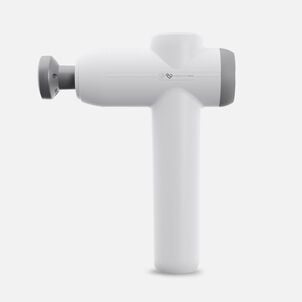Just opened an HSA? Know your account fees

Fees are like tiny paper cuts. If you get one, you'll barely notice it. If you get a few, you'll start paying closer attention. If you get 10 or more, you're ready to throw all your printed documents out the window and go home.
That's the problem with fees - they pile up under your nose. By the time you realize how much they're affecting your finances, the damage is already done. It's hard enough to get a handle on the fees associated with your bank and investment accounts, but it's twice as difficult with something like an HSA, which you probably use infrequently, and with a very limited understanding of the fine print.
Investment account fees
Many users choose to use their HSA as a secondary investment vehicle, but banks tend to charge a small monthly fee if you invest your HSA funds. Avoiding the investment fee seems to be a pipe dream at the moment, but you can always pick an HSA administrator with a lower fee, unless your HSA administrator is chosen for you by your employer.
If that's the case, and you want to have your HSA contributions taken pre-tax from your pay, you'll need to use whomever your employer has chosen.
On top of an automatic monthly investing fee, HSAs often charge trading fees - much like a traditional brokerage firm. Look into your trading fee options from your account administrator, so your investing dollars don't go toward unnecessary expenses.
Withdrawal penalties
HSA contributions are not taxable, but if you withdraw the money for a non-qualified medical expense, you'll end up paying a 20% penalty and income tax on the distribution. If you're audited, a $500 withdrawal for a non-qualified expense would result in a $100 fee on top of whatever your tax rate is. If you're in the 15% tax bracket, you'll owe an extra $75 on top of the $100 fine.
If you're 65 and older, you can take HSA distributions for any reason and avoid the 20% penalty. The amount will still be reported as income, and the tax rate will vary based on your income.
Monthly account fees
HSA providers sometimes charge monthly account maintenance fees. But it should be noted that if you participate in an HSA through your employer, they'll often take care of these fees for you. Your enrollment paperwork should detail this, but if you're unclear, check with your plan administrator.
Even if you're not participating, you can sometimes avoid the fee by keeping a minimum account balance. Of course, this varies; one well-known national bank has a $4.25 monthly service fee unless you have $5,000 or more in the account. Yet, a smaller competitor has no account fees or minimums.
Log on to your account and see if there's a monthly maintenance fee on your statement. If there is, call the bank and ask what you can do to avoid the fee. Some accounts start charging a fee if you switch employers and your account is no longer associated with your previous company (likely because your employer no longer pays the fee for you), so be aware of that possibility, as well.
Miscellaneous fees
Other common examples include paper statement fees, for which you can switch to an e-statement to save money, and check reorder fees. In that case, you can use the HSA debit card (when available) instead of a check.
Ordering a new debit card can also cost a few dollars, though some providers give out replacements for free if the card has been lost or stolen. Requesting an extra card for an authorized user may also come with a separate fee.
If you take out cash from your HSA to pay for a medical expense, you could owe ATM fees if you use a bank not associated with the HSA account. If you decide to roll over or close your HSA, You may also face a fee. One notable bank currently charges $25 for account closures or rollovers.
In the end, if you have an HSA through an employer, fees are often taken care of. But if you've selected your own health savings administrator, and want to get the most out of your HSA, you need to be aware of the fees you're being charged, and how to avoid them.


.png)
















